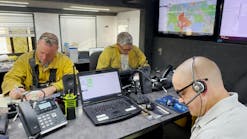Leadership Lessons: After the Ultimate Sacrifice
As we enter the last month of 2016, I cannot help but remember all the tragedies that have struck the emergency services. From tragic, heroic and preventable deaths of our nation’s firefighters to the attacks on law enforcement officers, I am left with a sense of sadness. However, I know my sadness cannot compare to the friends, coworkers and family members of those who have been lost. There are few, if any, words that can be said to ease the pain of such loss, but our actions can speak louder than our words even after we are gone.
I wonder about the families, how are they coping, how are they surviving, what emotional, physical, and financial resources have been made available to them long after the pipes are silenced, the celebrations of life concluded, and things begin to return to “normal.” While a difficult topic for some, this month, I want to focus on preparing for the day that you may make the ultimate sacrifice.
As a professional, you have spent countless hours learning your trade, sharpening your skills, preparing your mind and body to perform at its best, even during the worst of times; however, I must ask you a question: What have you done to prepare and take care of your family if things go tragically wrong and you never come home? Do your significant others understand what services are available to them? Do they understand how to access these services? Do they know how long these services will be made available to them? What support systems are in place long after you are gone? If you are a leader in an organization, what systems and processes do you have in place to ensure that the family is supported through the most difficult time of their life and for how long?
As the individual, what are your family's immediate needs: emotional support, physical support, financial support or a combination of these? Once you have asked these questions, it is your responsibility to make sure the answers and the solutions are in place long before they are ever needed. If you are going to live a life where you may give your life for that of another, you owe it to those who may be left behind to know what is available to them and how to access it.
Some of the things that need to be considered regarding emotional support include what programs are available to your family, both short-term and long-term, as well as who is responsible for these programs—your former employee, your union, an insurance company, a non-profit, etc.? Does a family or family member need physical support, which can range from child care to dependent coverage for a person to whom you were their primary caregiver (e.g., child with special needs, elderly parent). Finally, how will they be supported, fiscally speaking? Will your family have enough financial resources to live on, if so, for how long? A hard topic you have to consider is whether your family members will be fiscally responsible. Regardless of the answer, are financial counseling services available to them? Sadly, we know that vultures live amongst us and these vultures will prey upon emotions and try to exploit your family (financially). Knowing this, what have you done to protect them?
As a leader within the emergency services, including union leadership, have you asked these questions of your organization and identified how you will be there for the family in their greatest time of need? If not, why not? If so, great, however, is there anything you can learn from another organization that has experienced a line-of-duty death and take those lessons learned and apply them into your organization?
For the most part, the great majority of those who wear a uniform understand the inherent risks of the job. However, we often fail to realize what happens after a tragedy occurs. While we do give thought, do we truly give it deep thought and consideration and do we make sure our i's are dotted and our t's are crossed as much as we do in all other aspects of our profession?
It is honorable and noble to risk your life for a cause greater than your own; however, do not risk the livelihood and the future of the ones who are left behind because you failed to plan. In the fire service, we know the value of preplanning. Shouldn’t this known value be applied to your personal life too? You work in a constant state of readiness and preparedness, so make sure your personal life has the same readiness and preparedness; in doing so, you will ease the burden, if ever-so-slightly, on your loved ones
Stay low, stay safe and train every day!

Steven M. Gillespie
STEVEN M. GILLESPIE, Ed.D, started his fire service journey in 1993 and is a professor with Columbia Southern University’s College of Safety and Emergency Services, teaching fire service and leadership courses to current and aspiring leaders. Dr. Gillespie has held all ranks within the fire service, and has earned a doctor of education degree in organizational leadership and development and a master of science degree in executive leadership, a bachelor of arts degree in organizational leadership, and an associate of science in fire science technology.






